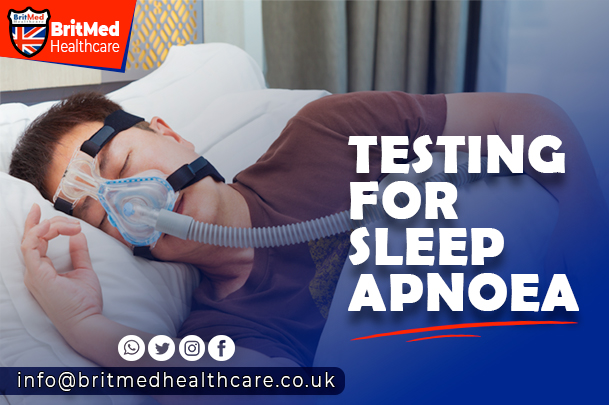Testing for Sleep Apnoea: Everything You Should Know
Sleep apnoea is a common sleep disorder characterized by repeated partial upper airway collapses or complete obstructions of the upper airway during sleep, which results in fragmented sleep and oxygen desaturation. Based on this fact, this article will discuss various methods of sleep apnoea testing that are employed in the diagnosis and management of the condition.
What is Sleep Apnoea?
Sleep apnoea is a condition in which the airway becomes obstructed or partially blocked, resulting in the person stopping breathing for brief moments. This could be manifested in the following various symptoms:
-Disturbed sleeping-the person may wake up several times during the night
-Daytime sleepiness and fatigue
-Headaches in the morning
-Snoring and gasping
-Disorientation and forgetfulness Types of Sleep Apnoea
There are three main types of sleep apnoea:
– Obstructive Sleep Apnoea: This is the most common form and occurs when partial blocking of the airway occurs due to tissue excess around the throat, tongue, or soft palate.
– Central Sleep Apnoea: This type arises when the brain, in turn, fails to send signals to breathe during sleep.
– Mixed Sleep Apnoea: This is a combination of both Obstructive and Central Sleep Apnoea.
Sleep Apnoea Testing Methods
There are several tests used in diagnosing and monitoring sleep apnoea:
PSG is an overnight comprehensive sleep test that monitors brain waves along with other physiological activities such as muscle activity and breathing patterns. Home Sleep Apnea Testing: A portable device that can be employed for home use, which records breathing patterns and oxygen levels during sleep. Multiple Sleep Latency Test: This assesses the extent of daytime sleepiness. Actigraphy: A non-invasive instrument useful in monitoring movement and periods of rest throughout the day. Oximetry: A procedure used to measure oxygen saturation throughout the night.
How Testing Works in Sleep Apnoea?
A sleep apnoea test involves a patient sleeping in a sleep laboratory or at home with a portable device. The test will measure the following physiological activities, including:
-Breathing pattern- the apneas and hypopneas
-Oxygen saturation
-Heart rate and blood pressure
-Brain activity and muscle tone
-Stages of sleep and wakefulness
-Results of Sleep Apnoea Testing
Trained health care professionals analyze these results to determine the presence of sleep apnea, its severity, and other possible root causes. The test results will therefore assist, in this regard, in the diagnosis of sleep apnea, determining the most appropriate mode of treatment, monitoring whether treatment is successful, pinpointing potential complications.
Conclusion:
This constitutes an important step in diagnosis and management of the condition. Understanding various methodologies of sleep apnoea testing will put the individual in charge of his sleep health toward improved quality of life. The healthcare professionals will take an important role in interpretation of results, decision on a personalized treatment plan, and monitoring of progress.
References:
- National Sleep Foundation (2020). What is Sleep Apnea? Retrieved from https://www.sleepfoundation.org/sleep-apnea/
- American Academy of Sleep Medicine (2020). Sleep Apnea Testing. Retrieved from https://aasm.org/resources/clinical_gallery/sleep_apnea_testing.pdf
- British Thoracic Society (2019). Sleep Apnoea: Diagnosis and Management. Retrieved from https://www.brit-thoracic.org.uk/document-library/clinical-information/sleep-apnoea-diagnosis-and-management/
Websites:
Britmed Healthcare: https://britmedhealthcare.co.uk/
Nightingale Hospital: https://www.nightingalehospital.co.uk/
Top Doctors: https://www.topdoctors.co.uk/doctor/ahmed-el-missiry
You can also book, Contact us on WhatsApp 08009708017




